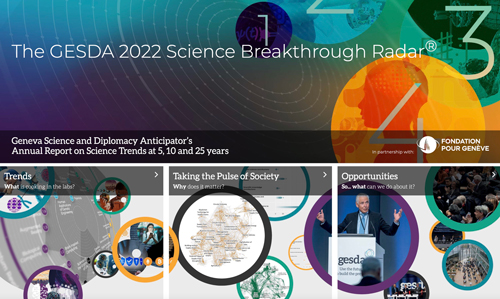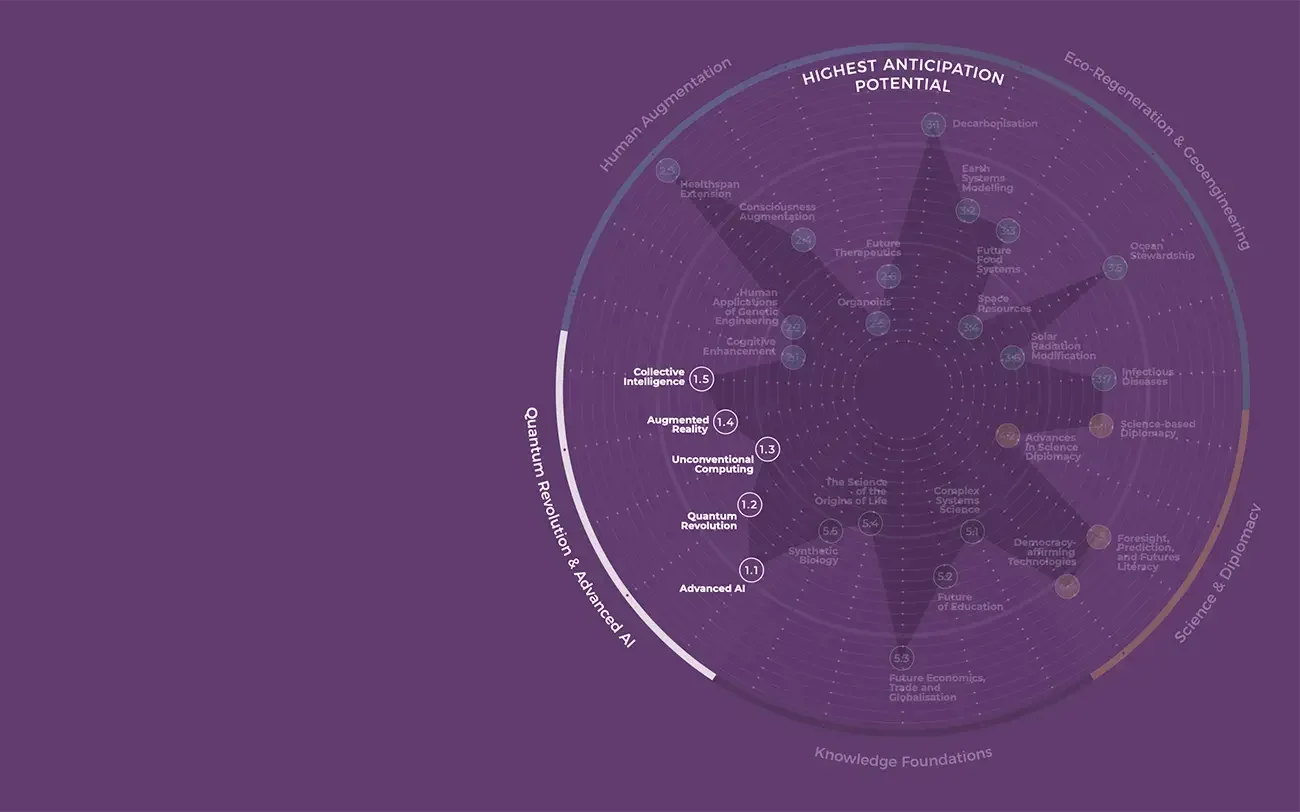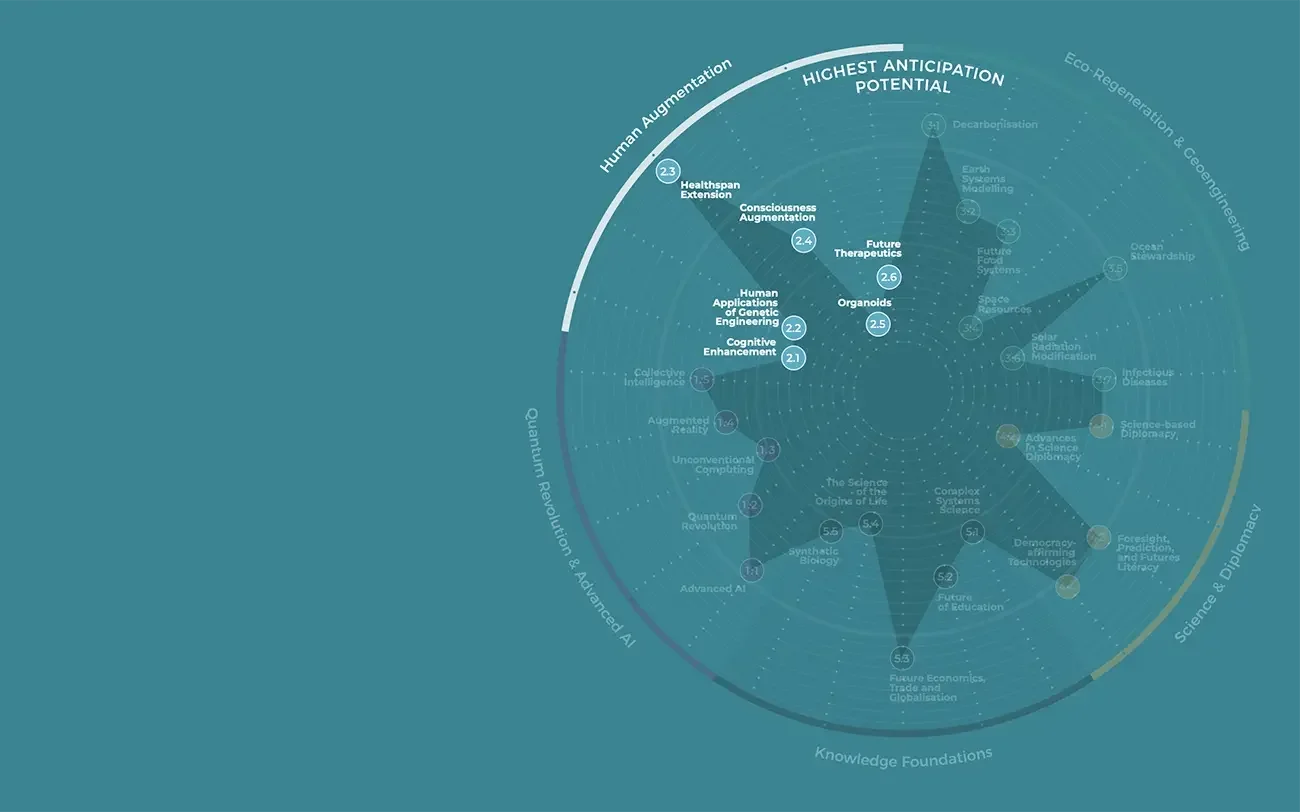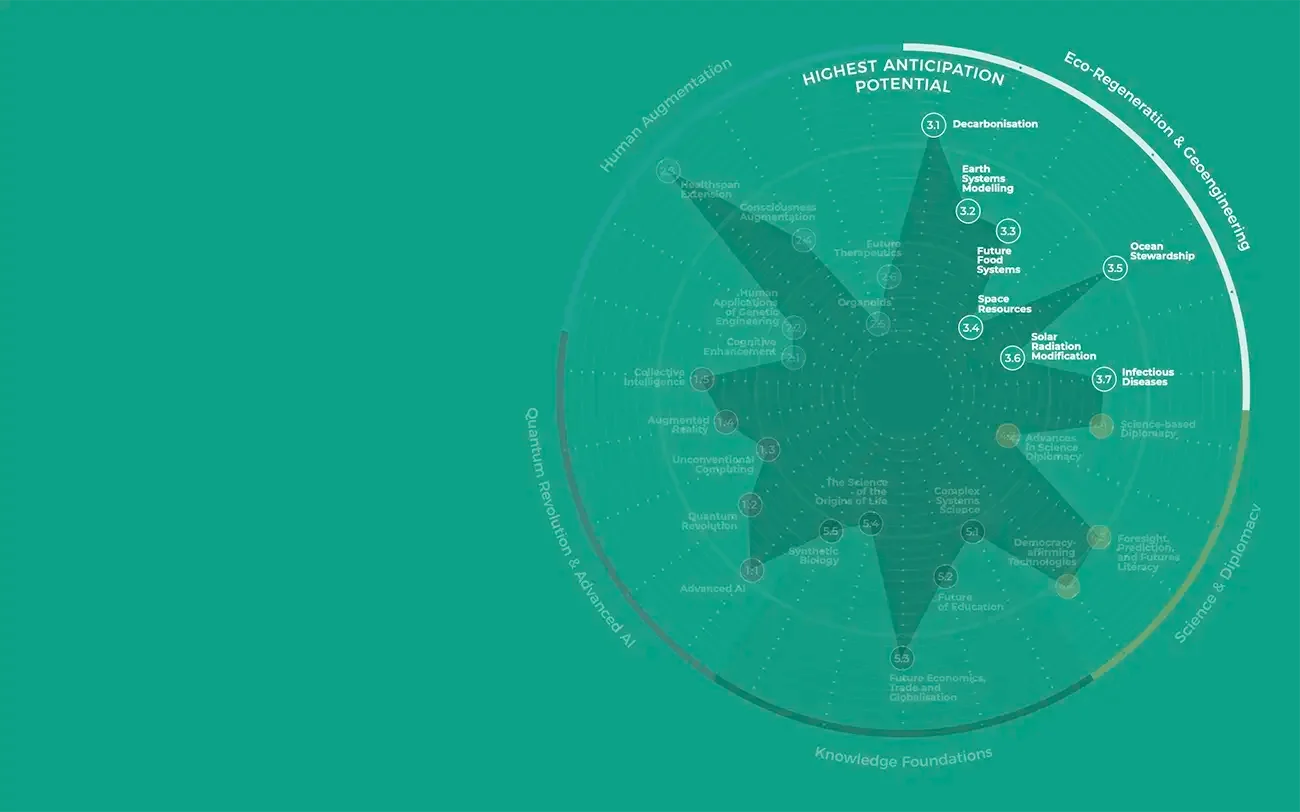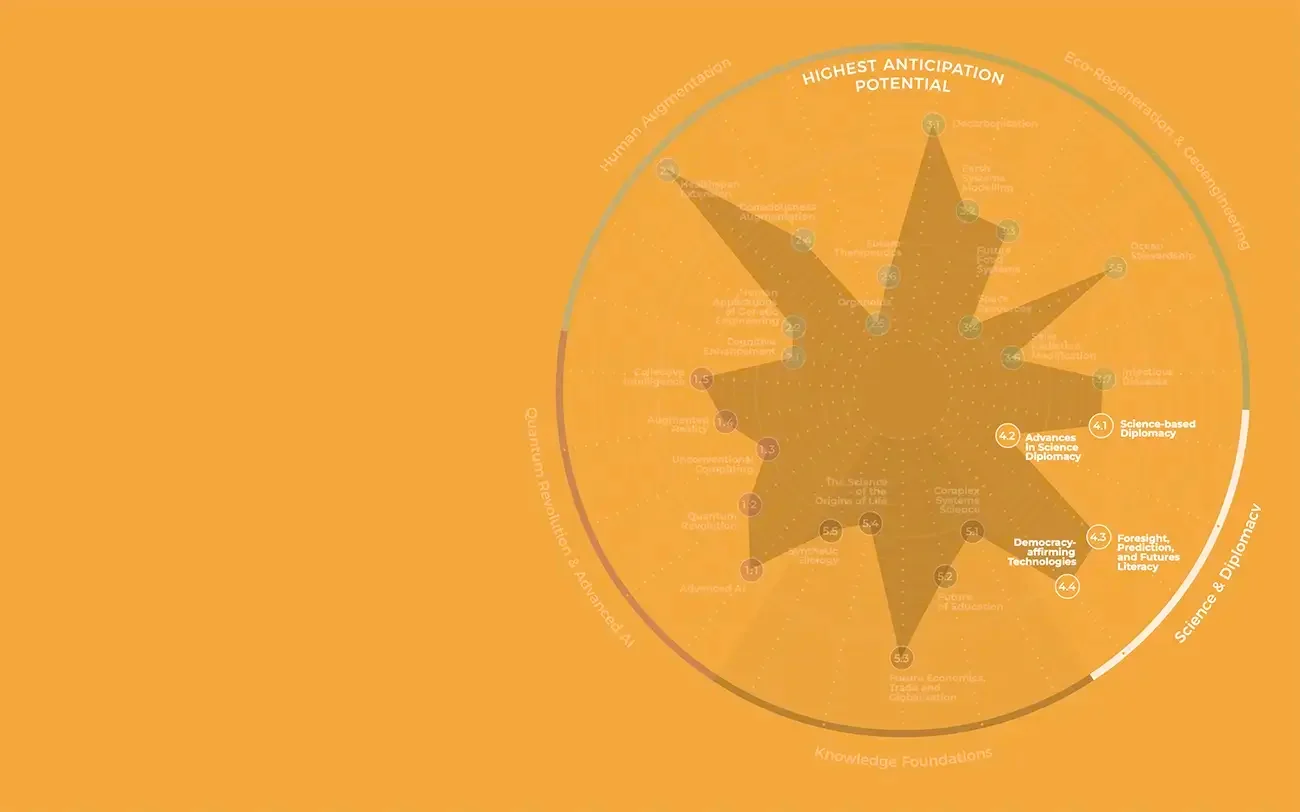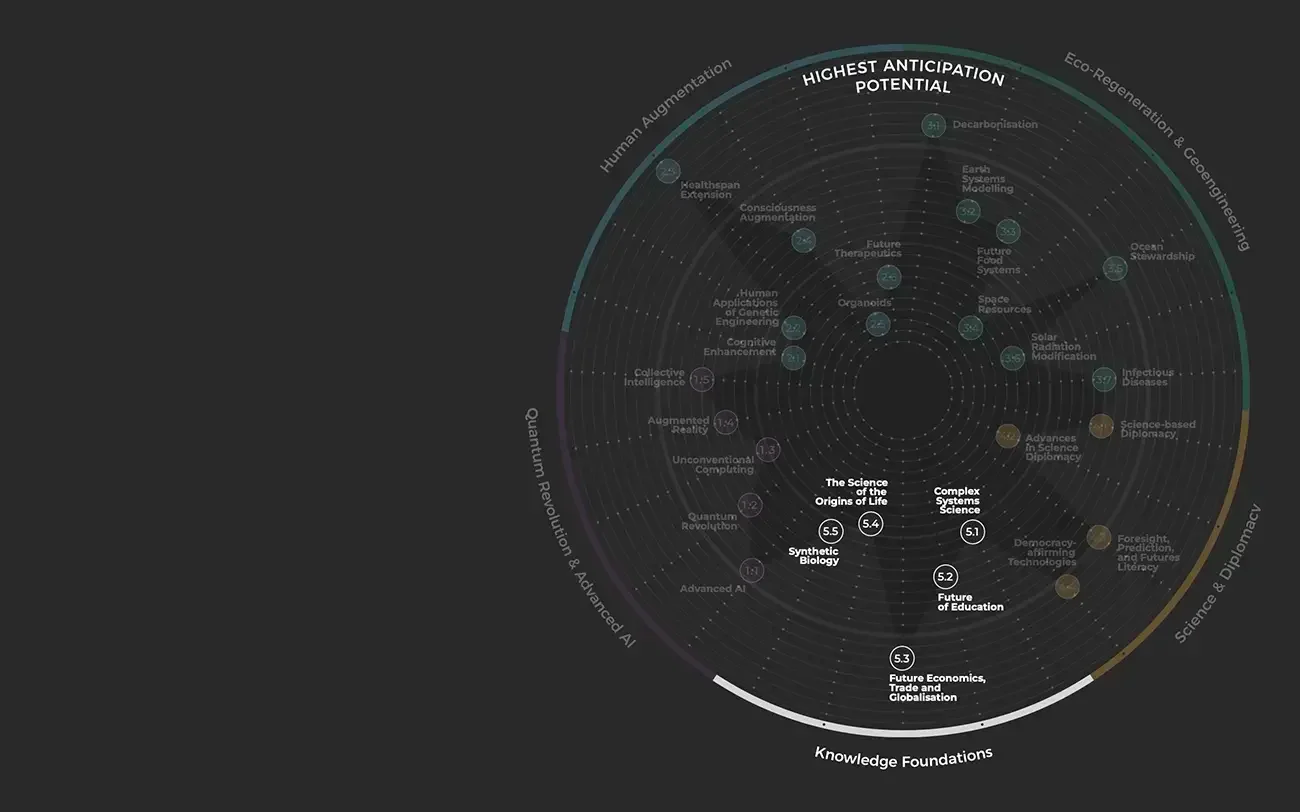Scientific Platforms:
The GESDA Science Breakthrough Radar® focuses on what scientists in the world's most advanced laboratory say about future advances in their fields. It does not have the ambition at this stage to discuss the implications of these advances on society and diplomacy, nor does it take sides on whether the mentioned breakthroughs are desirable or not.
Anticipating the science in this 25-year timeframe can contribute to accelerating broad-based debates about the social and political implications, providing a basis for the collective identification of meaningful solutions to today's and tomorrow's most pressing challenges.
This section describes science trends that have been anticipated in 42 scientific emerging topics, covering a broad range of research areas in natural sciences, engineering sciences, social sciences and the humanities. Those trends are not absolute predictions — they may develop in unforeseen ways — but noting their emergence makes an important contribution to debates about the future of humankind, and the role Geneva and the international community can play within it. The trends and related breakthroughs are updated on a rolling basis through constant engagement with the global academic community. They are distributed across five scientific Platforms:
Quantum Revolution & Advanced AI
Human Augmentation
Eco-Regeneration & Geoengineering
Science & Diplomacy
Knowledge Foundations
More than 1,542 scientists from 73 countries contributed through surveys, workshops and interviews. Their insights were used to define the “anticipation potential” of those topics and to create comprehensive briefs that list 324 potential breakthroughs, providing a basis for further discussion.
The list of topics presented in this section is not exhaustive: it is a subset of areas where the GESDA Academic Forum believes relevant impactful breakthroughs will happen in the next 25 years. Invited contributions from leading scientists provide a glimpse into additional emerging topics that are not covered in depth in this version of the report, but will be expanded in future editions.
Because significant anticipatory work is also promoted by other key actors, and as science is progressing constantly, the briefs are extended by a collection of referenced reports and curated articles through the GESDA Best Reads.
Anticipating what is happening in the world's laboratories is essential if, as a society, we are to have the knowledge and the tools to build the world that we want.
That is why GESDA has developed a methodology for capturing the anticipation potential of possible scientific breakthroughs, with findings summarised in the GESDA Science Breakthrough Radar® presented here. The methodology and research behind the Radar is laid out over the following pages, and is based on insight and data drawn directly from scholars working in key fields of scientific research covering GESDA's five Platforms. It is a rolling assessment that will be updated year after year as our knowledge in those fields expands.
How to read the Radar
Our radar screen measures and illustrates the “anticipation potential” of each of the scientific emerging topics. Each Platform is represented by one sector of the Radar, and each scientific emerging topic by a dot. The farther the dot is from the centre of the radar screen, the higher the opportunity for the translation of the anticipatory effort into a positive outcome for humanity. This anticipation potential enables comparison of developments in a wide diversity of fields, including advances in social sciences and humanities, and overcomes the common bias towards prioritising today's trends over longer-term but potentially more significant developments. By focusing our efforts on immediate issues, we can overlook, and thus fail to address, the more fundamental questions and potential opportunities related to scientific advances at 25 years.
Each dot on the GESDA Science Breakthrough Radar® represents a scientific emerging topic with the potential for significant breakthroughs in the coming 25 years — breakthroughs that enhance our understanding of, or the capabilities of, an individual human being by changing the ways in which they interact and societies are organised and operate, or by transforming the natural and artificial environment.
We asked panels of scholars to evaluate and discuss, for each emerging topic, the:
expected time to maturity
expected transformational effect across science and industries
current state of awareness among stakeholders and
possible impact on people, society and planet
From their answers we constructed the anticipation potential, which reflects how important it is to anticipate. accelerate and translate developments in this field today. This is in full alignment with GESDA's vision: use the future to build the present.
All the texts presented in the Radar have been reviewed and endorsed by the moderators and the scholars involved in their preparation. For more information on the methodology, please view the Appendices
